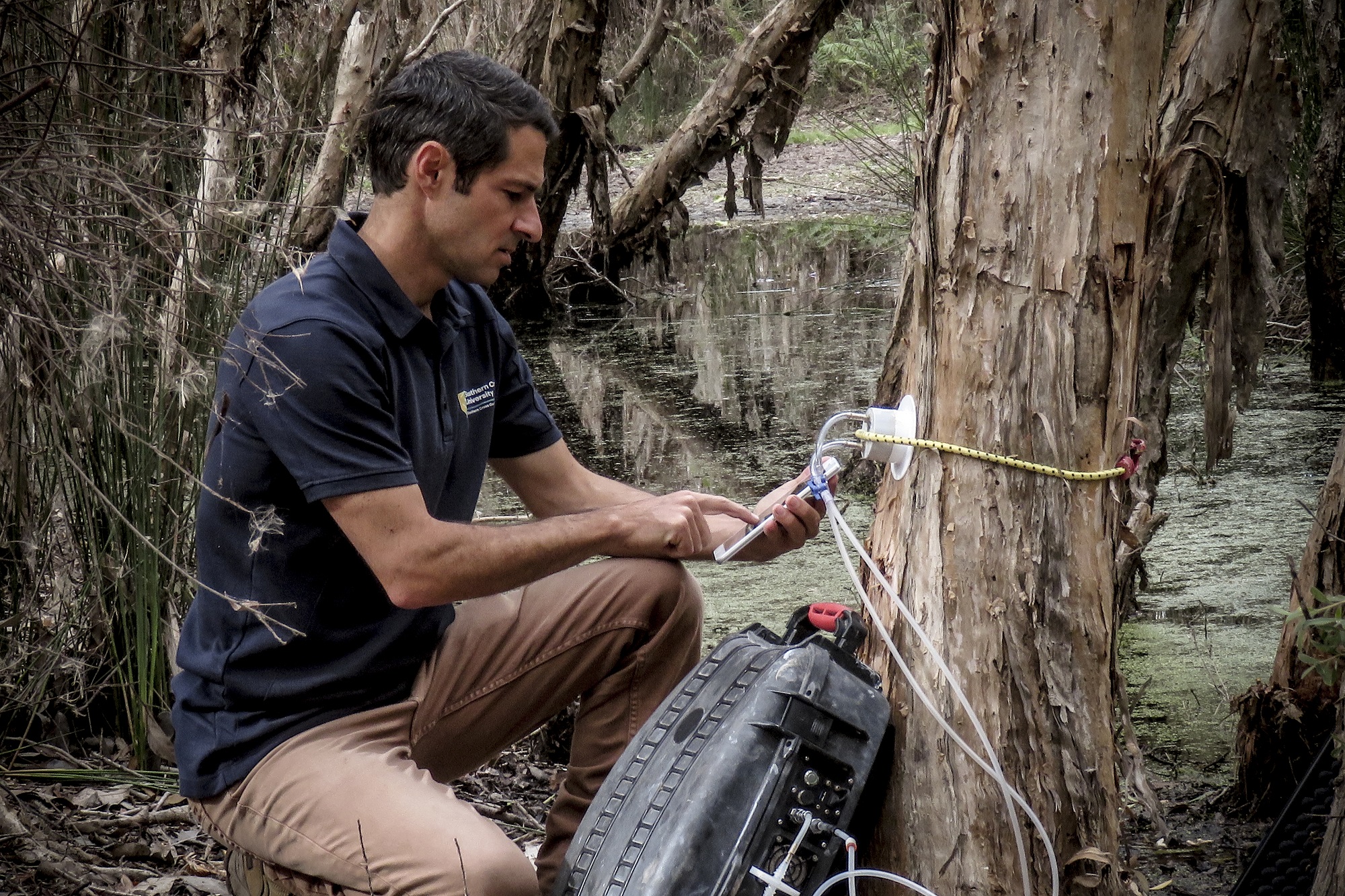Two Southern Cross University researchers, Dr Luke Jeffrey and Dr Judith Rosentreter, have secured Australian Research Council Discovery Early Career Researcher Award grants worth a total of $891,197 to further their studies on methane emissions from vegetation, soils and water, which have already turned up some game-changing findings.
So we now know that bark dwelling microbes have the capacity to regulate the methane emissions from trees and therefore may play an important mitigation role in the global methane cycle and in climate change.
Dr Jeffrey's previous research, which earned him a Chancellor's Medal from Southern Cross University and has been recognised in the United Nations Intergovernmental Panel on Climate Change Assessment Report 6, has shown that wetland trees can emit substantial amounts of methane, or 'treethane', via their stems or trunks - a process that, until now, has been broadly overlooked.
"While wetland soils store vast amounts of carbon, they also emit methane, a greenhouse gas that is about 45 times more powerful than carbon dioxide when it comes to warming our planet," said Dr Jeffrey.
In a different but related area of study, Dr Judith Rosentreter's new research, funded with an ARC DECRA grant worth $434,042, will focus on identifying and quantifying methane oxidation and production processes in mangrove environments, mostly in soils and water.



So what if?
So we now know that bark dwelling microbes have the capacity to regulate the methane emissions from trees and therefore may play an important mitigation role in the global methane cycle and in climate change.
It's literally in the summary.
Yes I just take issue with your editorializing of the title. Cuz it sounds to me like it's made out to downplay the actual issue of animal agriculture being destructive.
Sure. If you use the title to form an opinion, I can see how it be taken that way.
But we all know not to do that, right? That's why we read the articles, and to a lesser extent, the summary? Not only does the summary mention why it's important, the article has a good quote too:
"However, our research has also uncovered hungry and abundant ‘methane-eating’ communities of bacteria living within the bark of the common Australian paperbark tree, which consume the methane and convert it to carbon dioxide – a far less potent greenhouse gas. This paradigm shifting discovery changed how we view the role of wetland forests within the global methane cycle.”
But for you, I will change it. I guess when you're mostly the only one submitting content to this community, you also get it wrong too, by opening links, using multiple summarisers, and changing the title to something out of the original article when it doesn't suit.
You're the one that made the title that way. I am asking why you chose that wording. I did read the article and your title makes zero sense in context.
The implication from your title is that "cattle farming isn't so bad because look at this study that doesn't reinforce that insinuation!"
Yes, mate, you're never wrong. Just leave it, huh?
*removed externally hosted image*
I'm actually often wrong I just think that is odd wording given the context.